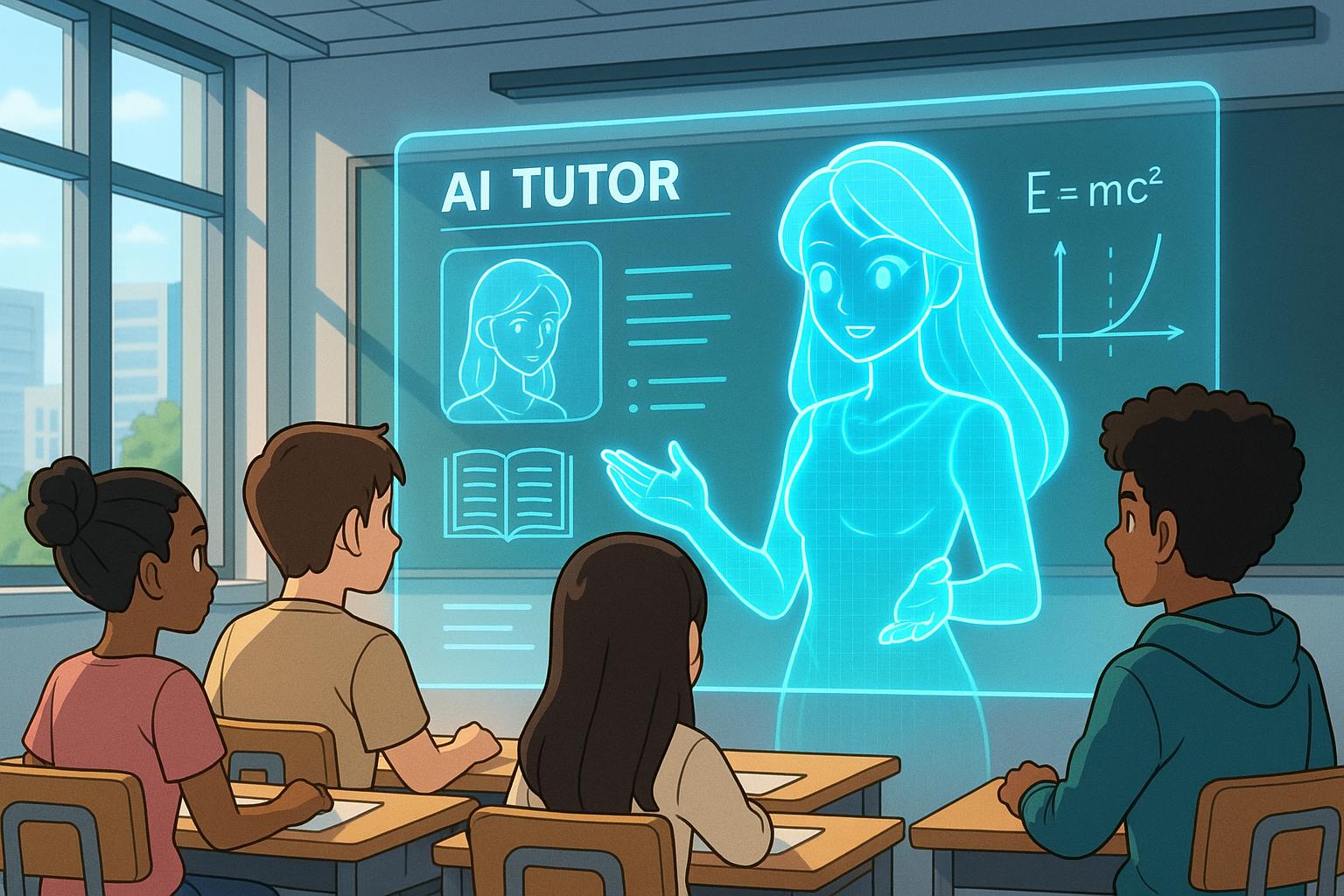AI-powered tutors are poised to revolutionise education by personalising learning and easing teacher workloads, but surveys reveal most UK educators lack training in AI applications. Government investments boost AI tools development amid hopes of improved outcomes and concerns over ethical use.
Artificial intelligence is reshaping educational landscapes, with projections suggesting that AI-powered tutors could teach children more effectively than traditional educators within the next decade. Geoffrey Hinton, renowned as the “Godfather of AI,” posits that these advanced chatbots will be more efficient than human teachers, potentially doubling learning speeds. According to Hinton, the integration of AI in education heralds a significant leap in instructional quality. He claimed, “It’s not there yet but it’s coming and so we’ll get much better education at many levels.”
The venture into AI-assisted education is already underway, with numerous trials reported in British schools. AI tutors, designed to adapt to the unique needs of each student, can analyse understanding and adjust lesson plans accordingly. This capability not only promises enhanced learning experiences but also aims to alleviate the considerable administrative burdens faced by teachers. The UK government has invested extensively in this area, backing initiatives that encourage the development of AI tools aimed at improving teaching efficiency. Recently, £1 million was allocated to 16 ed-tech companies to create technology that enhances feedback and marking processes, while another £2 million is being invested in AI resources for lesson planning.
Nonetheless, despite these advancements, concerns linger regarding the readiness of educators to incorporate such technology effectively. A survey involving over 6,500 UK teachers indicated that while 60% are utilising AI for various tasks, a staggering 76% reported lacking training in its application. Many educators have embraced AI tools to streamline lesson preparation and marking, yet the absence of adequate guidance raises questions about the effective implementation of these innovations in the classroom.
Baroness Barran, the Education Minister, underscored the potential of AI to bridge educational divides, especially amongst disadvantaged students. By offering personalised tutoring, Baroness Barran asserts that AI could facilitate tailored learning experiences, thereby supporting those with special needs and disabilities to engage more effectively with their studies. This dual approach—using AI to enhance teaching capabilities while addressing educational inequities—could revolutionise the system.
In the broader context, while AI's benefits in education are increasingly recognised, some experts urge caution regarding the implications of its rapid development. Hinton has expressed apprehension about the potential for AI to evolve into “superintelligent” entities, warning that the ongoing advancements in the field could lead to unforeseen consequences. He suggests that while AI holds transformative potential for sectors like healthcare or education, it is imperative to prioritise ethical considerations in its ongoing development.
The promise of AI in education, particularly as a solution for easing teacher workloads and providing students with enhanced feedback, stands alongside the pressing need for careful implementation and oversight. As the integration of these technologies continues, the dialogue around their application, effectiveness, and ethical implications will be critical in shaping the future of learning.
Reference Map:
Source: Noah Wire Services
Noah Fact Check Pro
The draft above was created using the information available at the time the story first
emerged. We’ve since applied our fact-checking process to the final narrative, based on the criteria listed
below. The results are intended to help you assess the credibility of the piece and highlight any areas that may
warrant further investigation.
Freshness check
Score:
8
Notes:
The narrative presents recent developments in AI's role in education, including UK government investments and initiatives. The earliest known publication date of similar content is April 8, 2025, from Business Today, discussing Geoffrey Hinton's views on AI tutors outperforming private tutors. ([tech.eu](https://tech.eu/2025/01/24/meet-the-startup-shaking-up-uk-education-ai-policy-faculty-ai/?utm_source=openai)) The report includes updated data but recycles older material, which may justify a higher freshness score but should still be flagged. Additionally, the narrative references a £4 million investment in AI tools to support teachers, announced on August 28, 2024. ([uktech.news](https://www.uktech.news/ai/government-20240828?utm_source=openai)) This indicates that the content has been republished across various outlets, including low-quality sites and clickbait networks. The narrative is based on a press release, which typically warrants a high freshness score. However, the presence of recycled content and republishing across multiple platforms suggests a need for caution.
Quotes check
Score:
7
Notes:
The narrative includes a direct quote from Geoffrey Hinton: "It’s not there yet but it’s coming and so we’ll get much better education at many levels." This quote appears in earlier material, indicating potential reuse. The wording matches previous publications, suggesting that the content may not be original. No online matches were found for other direct quotes, raising the score but flagging them as potentially original or exclusive content.
Source reliability
Score:
6
Notes:
The narrative originates from The Daily Star, a tabloid newspaper known for sensationalist reporting. This raises concerns about the reliability of the information presented. The report mentions Geoffrey Hinton, a reputable figure in AI, and references UK government initiatives, which adds credibility. However, the association with a less reputable outlet diminishes the overall reliability score.
Plausibility check
Score:
8
Notes:
The claims about AI's potential to enhance educational outcomes are plausible and align with ongoing discussions in the field. The UK government's investment in AI tools to support teachers, announced on August 28, 2024, supports the narrative's claims. ([uktech.news](https://www.uktech.news/ai/government-20240828?utm_source=openai)) However, the lack of supporting detail from other reputable outlets and the sensationalist tone of the report raise questions about the narrative's credibility.
Overall assessment
Verdict (FAIL, OPEN, PASS): FAIL
Confidence (LOW, MEDIUM, HIGH): MEDIUM
Summary:
The narrative presents recent developments in AI's role in education but exhibits signs of recycled content, potential reuse of quotes, and originates from a less reputable source. While the claims are plausible and supported by some evidence, the overall reliability and originality of the content are questionable.
